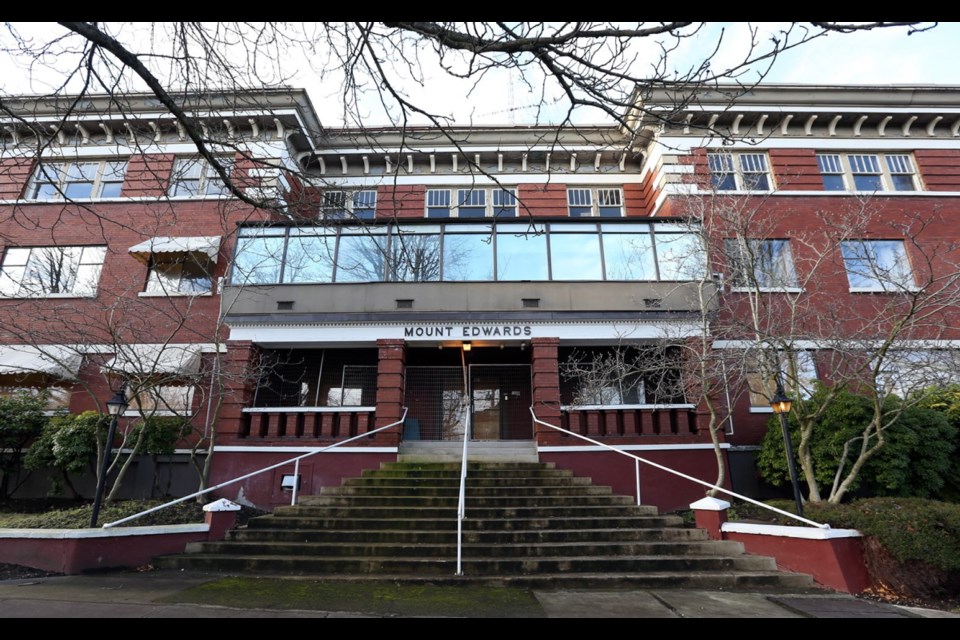Illicit drug use would be prohibited in Mount Edwards Court under a proposal to transform it into supportive and affordable housing units for residents 50 years and older.
A decision on whether to send a rezoning application for the former Baptist Housing Society care facility to public hearing is to be made by Victoria councillors this week.
The proposal, for 1002 Vancouver St., is being put forward by the Cool Aid Society on behalf of B.C. Housing. It would see up to 93 people housed in 78 units of supportive housing and 12 studio and one-bedrooms suites for those able to live independently.
Cool Aid CEO Kathy Stinson said the model was developed in response to concerns from the neighbourhood, which includes the adjacent Christ Church Cathedral School.
“What will be happening at Mount Edwards is anyone who is actively using [drugs] will be screened out,” Stinson said.
“Then if somebody starts using while they are there, if they can’t get that under control quickly, then we’ll work with them to move on quickly to somewhere else.
“We’re going to be very closely monitoring that.”
Mount Edwards Court was purchased by the province for $3.65 million in 2016 and is being used as transitional housing for up to 38 people at a time.
Parents and officials from the neighbouring Christ Church Cathedral School have cited safety and security concerns and complained of drug use and neighbourhood disruption, and the school says attendance has gone down.
Mayor Lisa Helps believes the proposal is a good fit for the neighbourhood.
“It’s very similar to what was there before the seniors residence closed down,” she said.
“And the most exciting part of the proposal is that the third floor will be a mix of studio and one-bedroom apartments,” because it means the building will be able to accommodate older couples, she said.
“The biggest challenge that all of the people living in the building will be facing is poverty,” Helps said.
Poverty will have been an issue for most residents. Cool Aid says some residents will:
• Have chronic physical health needs
• Be managing a mental illness or a brain injury
• Be working to overcome social isolation
• Have mild to moderate cognitive or developmental challenges
• Have struggled with substance use but will be working on recovery
No one with a history of violence will be admitted.
A minimum of three support staff are to be on site around the clock to support residents — helping keep units clean and safe, assisting with medication monitoring, helping residents build positive relationships and set boundaries and supporting individuals’ goals.
Health professionals, including nurses and drug and alcohol counsellors from Cool Aid’s community health centre are to visit regularly; a light breakfast and one hot meal is to be provided daily and two communal kitchens will allow residents to make their own lunches and snacks.
The entrance will be secured and monitored by staff, and exterior security cameras will also be monitored.
Cool Aid staff will maintain an active presence during school drop off and pick up times.
The hope is that residents 50 and older will be a little more stable and settled, Stinson said.
The need for housing for people over 50 is “huge,” she said. “Certainly, we’ve seen an increasing demographic in our shelters of people over 50.”



